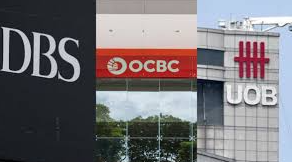UOB, OCBC, and DBS Bank are introducing a new feature allowing customers to "lock" their funds to prevent digital transactions, aiming to protect agai
UOB, OCBC, and DBS Bank are introducing a new feature allowing customers to “lock” their funds to prevent digital transactions, aiming to protect against rising scam incidents. The feature will be available to UOB and OCBC customers from Nov. 30, while DBS will implement its version between Nov. 27 and Dec. 7.
This initiative addresses recent scam cases where bank accounts were compromised, especially through malware, prompting the banking industry to act swiftly and consider in-depth security enhancements.
How the Money Locking Systems Work
UOB’s LockAway Account: This account, named LockAway, requires no minimum initial deposit and restricts access to linked cards or ATM withdrawals. The goal is to prevent impulsive responses to scam demands, ensuring funds remain protected while continuing to accrue interest.
OCBC’s Money Lock: OCBC’s Money Lock allows funds to be withdrawn via ATM, using a debit or credit card and PIN. Advising customers to lock only surplus funds, OCBC also requires a minimum of S$10 in the account. The feature is described as a vital safeguard to protect customer savings.
DBS Bank’s digiVault: DBS’s digiVault, live by Dec. 7, will allow account locking within a minute through the digibank app, without a minimum balance requirement. Customers can also secure fixed deposit accounts from Nov. 27, preventing premature digital fund transfers and date changes.
MAS Supports Anti-Scam Efforts
The Monetary Authority of Singapore (MAS) supports the rapid introduction of these features, citing their value in limiting potential losses to scammers. MAS noted that, although less convenient, “money lock” significantly reduces the likelihood of unauthorized withdrawals and pressured transfers.
By requiring in-person access to retrieve locked funds, this initiative offers an added layer of security, ensuring scammers face greater challenges in accessing customers’ savings.



COMMENTS